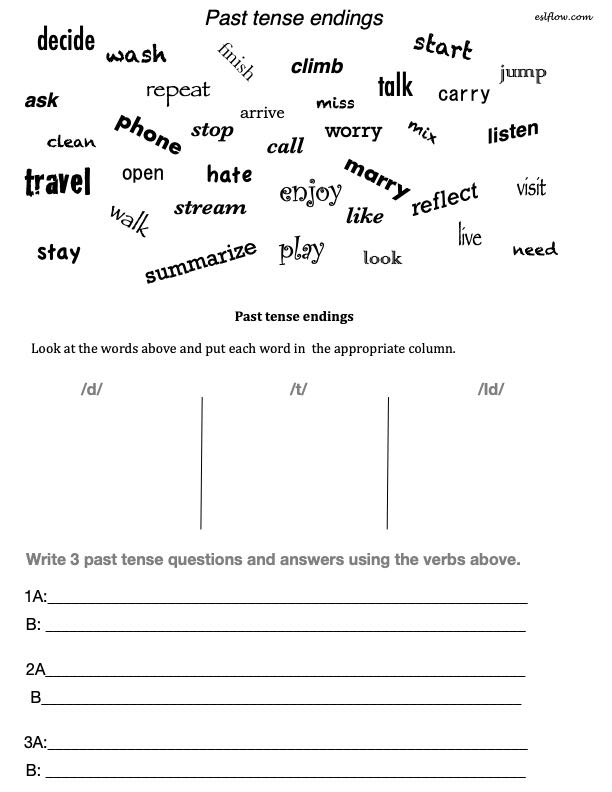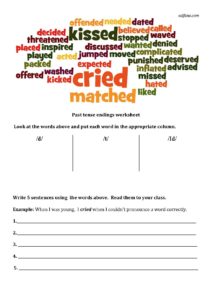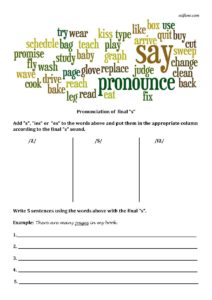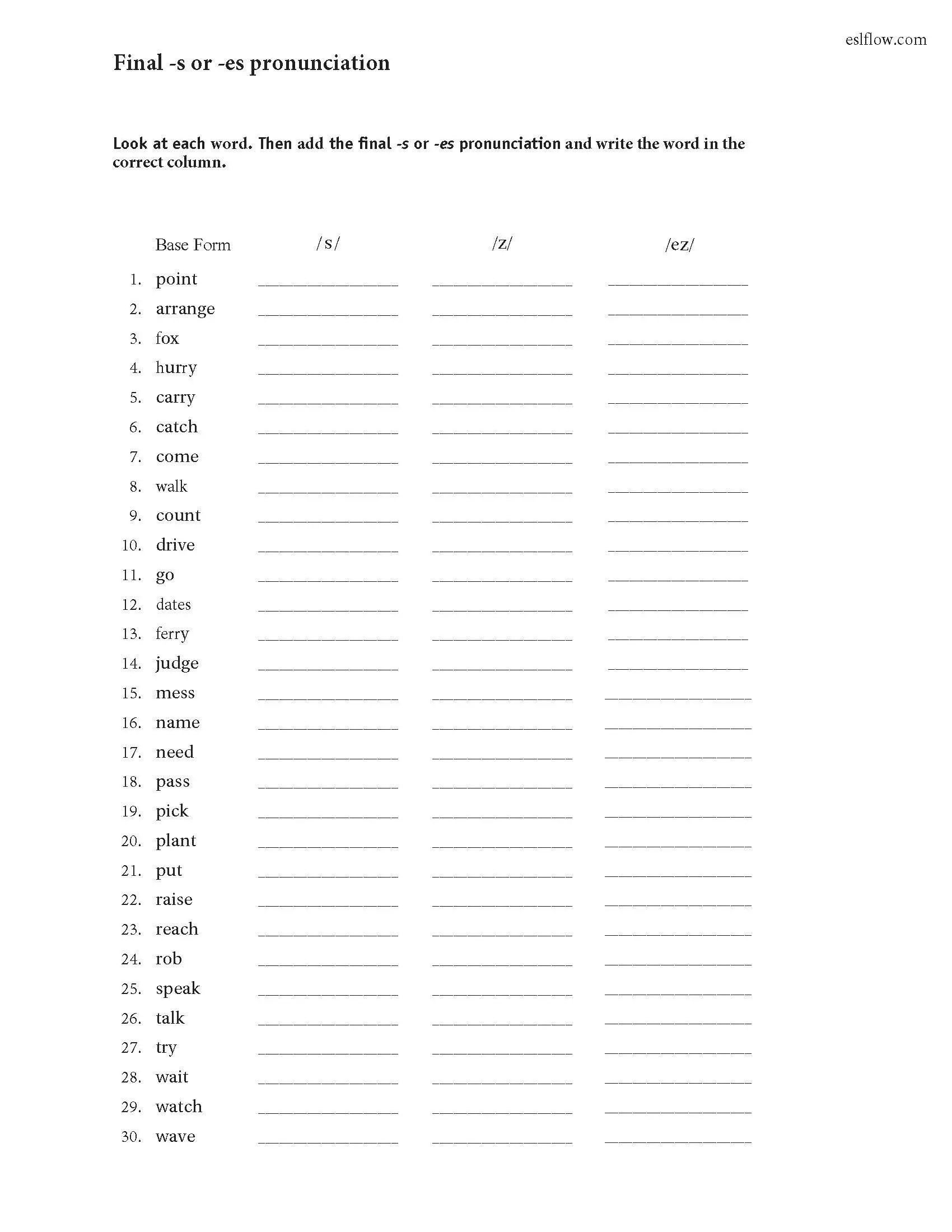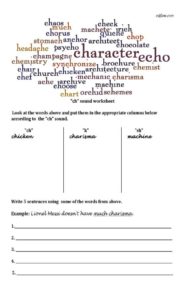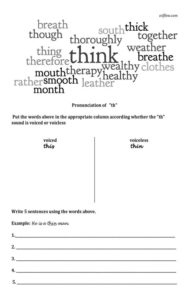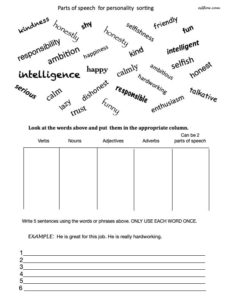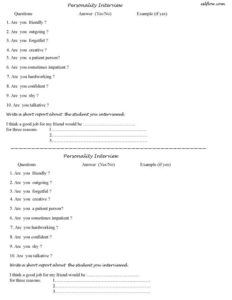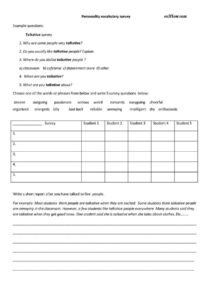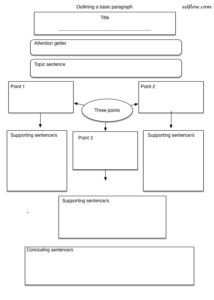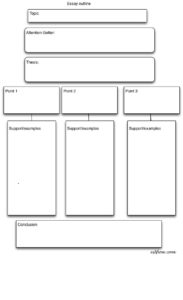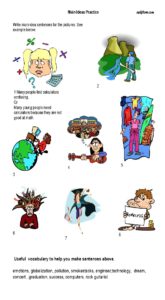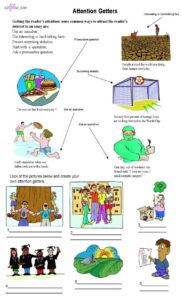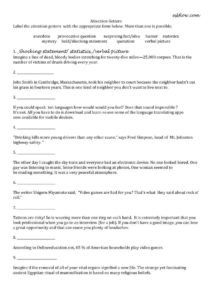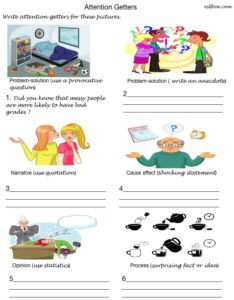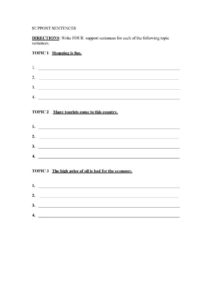Jobs and Careers Vocabulary, Listening and Speaking Exercises
31st July 2024
This is a selection of resources designed to assist teachers help English language learners improve fluency and self-expression for job interviews.
Online Job Interview preparation
These exercises are quite useful for students preparing for job interviews in the 2020s, particularly given the increased prevalence of online and remote interviews. They provide an overview of the unique aspects of online job interviews, which have become increasingly common in the 2020s. They help students adapt their interview skills to the digital age, preparing them for the realities of the modern job search process.
Brainstorming Online Interview Preparation Extract PDF
Online Interview Critical Thinking Activities Extract (PDF)
Brainstorming Employer Requirements in the 2020s
Brainstorming Employer Requirements helps students identify and align their skills with industry needs in the modern job market, emphasizing flexibility and digital competencies.
Applying for Jobs Critical Thinking Exercises
Exercise 1: Which word is different?: Students identify the word that doesn’t belong in a group, enhancing their critical thinking and understanding of job-related vocabulary.
Exercise 2: Positive vs Negative Qualities for Job Applicants: Students categorize terms as positive, negative, or both, which helps them understand attributes valued by employers and those that may be detrimental.
Expressing Opinions about Careers
A vocabulary and critical thinking exercise for discussing careers. Students use the words at the bottom of the page to complete the sentences and then agree/disagree with the statements and give reasons for their choices.
Subscribe to Eslflow
Subscribe to get full access to complete (not just extracts) lessons with picture/vocabulary exercises and answers from eslflow.com. Many lessons include and audio and video. There are no ads in the newsletter and you will receive high quality, and up-to-date teaching resources regularly. And, if you subscribe, you will get access to ideas for creating artificial intelligence prompts , that will enable you to create English language teaching materials quickly! In addition, you will get access to the complete sets of exercises, with a wider variety of exercises and activities. Also, if you take out a paid subscription, you can download large collections of PDF, audio and video materials in zip files.
Elements of Employment -vocabulary & language (with answers)
This is an English language exercise introducing and exploring the language and vocabulary of careers and employment. Students try to match the vocabulary with the appropriate pictures.
Job Interview Role Play lesson
This is a speaking and writing lesson for practicing job interviews. I’ve been using this exercise for years. I works smoothly and seamlessly as a pair work exercise in any size class. Each student chooses a a partner and they role play a job interview. One student is the company interviewer and the other student is the applicant. Then they switch roles. The interviewer can take notes. Finally, they write a short report from their interviews notes.
Job Enquiry by Telephone (with audio and answers)
This is a listening/speaking telephone dialogue activity. A job candidate telephones a company manager and asks about he requirements for a job position. It includes language and vocabulary commonly used during the job application process. Students listen and try to complete the conversation.
Job enquiry conversation (PDF)
The Intern
This is a vocabulary listening and speaking exercise about a day in the life of an intern and contrasts it with university life.
Parts of Speech Exercise for Jobs and Careers
A parts of speech exercise to help develop students’ language skills.
Job Interview Scenarios listening/speaking (with audio and answers)
This is a listening/speaking lesson for practicing job interviews. Students try to complete the job interview speech bubbles with their own ideas and then listen to the audio and compare answers.
Job Interview Expressions & phrases
This is an English language exploring further the language and vocabulary of job interviews. Students try to match the vocabulary with the appropriate pictures. Then they write sentences using the expressions.
Job interview expressions (PDF)
Related Resources for the Hospitality Industry
Elementary jobs language exercises
Food, Restaurants and Cooking Home
10 Food, Eating and Restaurant Vocabulary and Speaking Exercises
8 Hotel Vocabulary and Speaking Skills Exercises
5 Airport and Airline Vocabulary and Language Skills Exercises with Answers
5 Intercultural Communication Language Exercises and Worksheets
5 Cool Advertising & Branding Vocabulary & Language Exercises
17 listening/speaking exercises for talking about technology
Job skills interview brainstorm and questions
This is a jobs skills interview lesson involving a brainstorm exercise and interview creation and role play activities to help graduating English language students prepare and role play the process of applying for a job. Students brainstorm vocabulary and write their own questions before doing an interview.
Job interview adjectives
This exercise introduces employment related adjectives. Students try to match the adjectives with the appropriate pictures.
Job interview adjectives (PDF)
Career discussion questionnaire
This is a discussion lesson for talking about career paths. Students can interview classmates and try to decide what kind of career might meet their needs.
Career discussion questionnaire (PDF)
Related Resources:
7 Money and Finance Vocabulary Exercises
4 Worksheets Expanding Business English Vocabulary and Speaking Skills
4 Money and Finance Vocabulary and Speaking Worksheets
12 Business English Speaking and Language Skills Exercises
5 Cool Advertising & Branding Vocabulary & Language Exercises
5 Describing Graphs Vocabulary and Language Exercises
Leadership potential interview/questionnaire
Students interview a classmate about their leadership potential and write their opinions at the bottom of the page.
